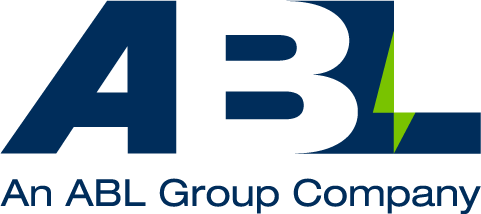Data-Driven Maintenance: Preparing Your CMMS for the Age of AI
ABL’s Asset Integrity Management (AIM) team in North America recently hosted a webinar exploring a critical question for asset-heavy industries: is your CMMS a digital filing cabinet, or is it ready for the new generation powered by AI?
Featuring insights from ABL experts Andy Bell and Afia McClenaghan, alongside guest panellists Robin Gardiner, Christopher Wheely, and Alex Trif, the session unpacked what it truly means to prepare asset data systems for AI-driven decision-making.

The Hidden Value in CMMS: It Starts with Structure
Your computerised maintenance management system (CMMS) is only as valuable as the data it contains and how that data is structured. Structured master data is the foundation for linking transactional records to meaningful analysis. Without consistent data rules, hierarchy, cleansed and accurate master data, organisations risk making decisions based on incomplete or misleading information.
Taxonomy—the way data is categorised and organised—is equally critical. Consistent taxonomy enables reliable reporting and analysis, which are prerequisites for AI-readiness. ABL’s proprietary tool, Effio, helps ensure consistency and quality in CMMS data builds, especially during large-scale transitions.
Governance and Lifecycle: Sustaining Data Quality Over Time
Data governance is about more than rules, it’s about ownership, accountability, and discipline. Without clear roles and responsibilities, data quality degrades.
Christopher Wheely, Maintenance Strategy and Execution Specialist, shared how implementing regional data stewards and restricting access to master data helped maintain integrity and avoid costly rebuilds.
“Lifecycle management treats data as a living asset. From acquisition and validation to retirement, data must be managed intentionally. Without this discipline, AI models are fed outdated or irrelevant inputs, undermining their effectiveness.”
AI Use Cases: Why Good Data Is Non-Negotiable
AI use cases like predictive maintenance, asset health scoring, and intelligent work prioritisation depend on clean, structured, and contextual data.
Alex Trif, Data Scientist, emphasised that the biggest challenge in deploying AI isn’t building models, it’s preparing the data. Inconsistent naming conventions, missing attributes, and unstructured entries prevent AI from learning meaningful patterns.
“AI needs context, not just numbers. Understanding asset history, operating conditions, and risk profiles is essential. Governance and lifecycle management are key to capturing that context and ensuring AI delivers reliable insights.”
Lessons from the Field: What Makes CMMS Programs Succeed
Successful CMMS optimisation programs are built on clear purpose, strong governance, and leadership sponsorship.
Robin Gardiner, Process Safety Industry Leader, stressed the importance of defining objectives, whether safety, uptime, or cost reduction, and aligning the program accordingly.
“Avoiding piecemeal approaches and embedding management of change (MOC) are also critical. Fragmented efforts lead to rework and missed opportunities. Standardisation, phasing by risk, and ongoing education ensure long-term success.”
Final Thought: Building the Future, One Data Point at a Time
AI won’t fix bad data. But with the right structure, governance, and lifecycle management, a CMMS can evolve from passive repositories into active engines of insights.
ABL’s AIM team is helping clients make that transition, ensuring their data is not just stored but ready to drive smarter, safer, and more efficient operations.
Access the full webinar here
In this webinar, ABL experts explore how structured master data, standardised taxonomy, and detailed work history are critical to unlocking the true value of your CMMS.
We show how a clean and well-governed CMMS foundation enables powerful AI-driven use cases like repeat failures, rework, predictive maintenance, work prioritisation, and spare part optimisation. This session focuses on what needs to be right inside your data systems today to prepare for tomorrow’s technologies.
This session covers:
- What structured master data really means in the context of asset management
- The role of taxonomy in enabling consistency, reporting, and AI-readiness
- How to build data models that connect assets, maintenance, spares, and costs
- The importance of data governance and lifecycle management in sustaining data quality
- How AI use cases, like predictive maintenance, asset health scoring, and intelligent work prioritisation, all depend on good data from the start
- Lessons learned from CMMS optimisation and master data build programs
ABL offers strategic asset management, maintenance, inventory, and data optimisation and migration solutions that enable operations across the globe to be safe, efficient, and profitable. By combining subject matter experts with our award-winning technology, we deliver best-practice, cost-effective and quality-assured solutions designed to unlock the optimal performance of your business.
